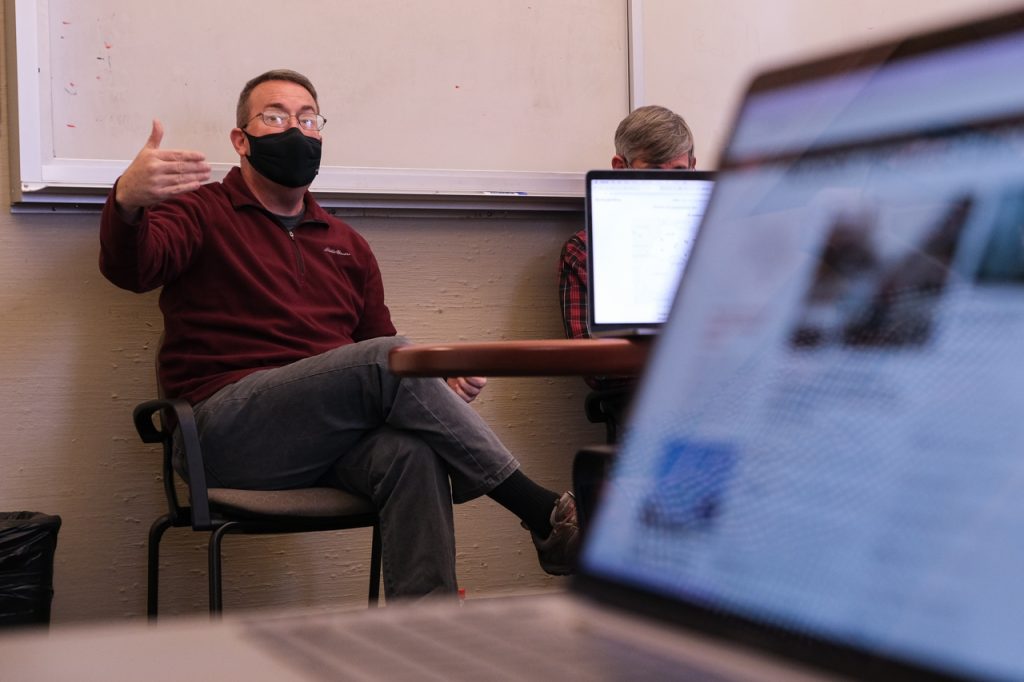As many Mississippians and Americans know, Gov. Tate Reeves signed “Critical Race Theory; prohibit” into law on March 14. While there are countless opinions to be had on this piece of legislation and its contents, some of which writers for this publication have already expressed, I, however, want to highlight something the bill intentionally does not touch on.
The law threatens to withhold funds for public institutions if “any sex, race, ethnicity, religion or national origin” is taught to be “inherently superior” or that “individuals should be adversely treated on the basis of their sex, race, ethnicity, religion or national origin.” It does not, however, mention sexuality. This is specifically because homosexuality is still illegal in the state of Mississippi, and is strictly forbidden to be positively acknowledged in public school instruction.
The Mississippi Code of 1972 holds an unending list of Mississippi statutes regarding topics from “War Veterans” to “Domestic Relations.” The law Reeves enacted on March 14 even mentions the Mississippi Code of 1972 in its first sentence, showing just how important this legislation is to everyday life in this state. Under Title 97, focusing on crime, there are sections on “Gambling and Lotteries” and “Dueling” to “Offenses Affecting Highways, Ferries and Waterways.” Right in the middle of this list, however, sits “Crimes Against Public Morals and Decency,” and within it, Section. 97-29-59: “Unnatural intercourse.”
The law states that anyone convicted of “the detestable and abominable crime against nature committed with mankind or a beast,” AKA sodomy and bestiality, is “punishable by imprisonment in the penitentiary for a term of not more than ten years.” While this law shouldn’t exist for many reasons, not just because of its disgusting comparison of gay sex to bestiality, Lawrence v. Texas made it unconstitutional after the Supreme Court ruled that any law criminalizing consensual homosexual intercourse violates the 14th Amendment in 2003 — which, as a side note, makes me wonder if this law’s unconstitutionality thereby makes bestiality legal in the state of Mississippi?
While this law cannot be enforced, it still has a place in our schools. Mississippi public schools’ sexual education, which I wrote an entire separate piece about, is required to teach abstinence-only (or the “groundshatteringly progressive, God-offending” instruction that is abstinence-plus) and a litany of other things, including “the current state law related to sexual conduct, including forcible rape, statutory rape, paternity establishment, child support and homosexual activity,” which we now know from the last paragraph. While some aspects of this state curriculum may be excluded, they absolutely cannot be contradicted, meaning a teacher in a classroom, if asked about homosexuality, must either say it is illegal or ignore the question.
If conservatives are so obviously afraid of gayness taking over schools, as shown through Florida’s “Don’t Say Gay” bill, why wouldn’t Mississippi lawmakers add “sexuality” to the new CRT bill’s “cannot-be-superior” list? The answer is simple: the state requires teachers to advocate for straight superiority and proclaim that heterosexuality is the only legal form of sexual expression. Mississippi’s laws governing sexual education are detestable and should be an embarrassment for each and every Mississippian, however, I certainly know it is not. Some of you may be wondering what can be done about this, and my honest answer is not much without a united wave of opposition. What can we do? We can call, email and annoy Mississippi state congresspeople into action. We can organize protests, found organizations and elect new representatives and senators that will advocate for an end to this undue discrimination.
For those of you who don’t care, please remember this: The brightest minds in this state know how prejudiced Mississippi’s very laws are against homosexuality, race and so many other things, and they will continue to leave in droves until something monumental changes.
Londyn Lorenz is the opinion editor majoring in Arabic and international studies from Perryville, Missouri.















